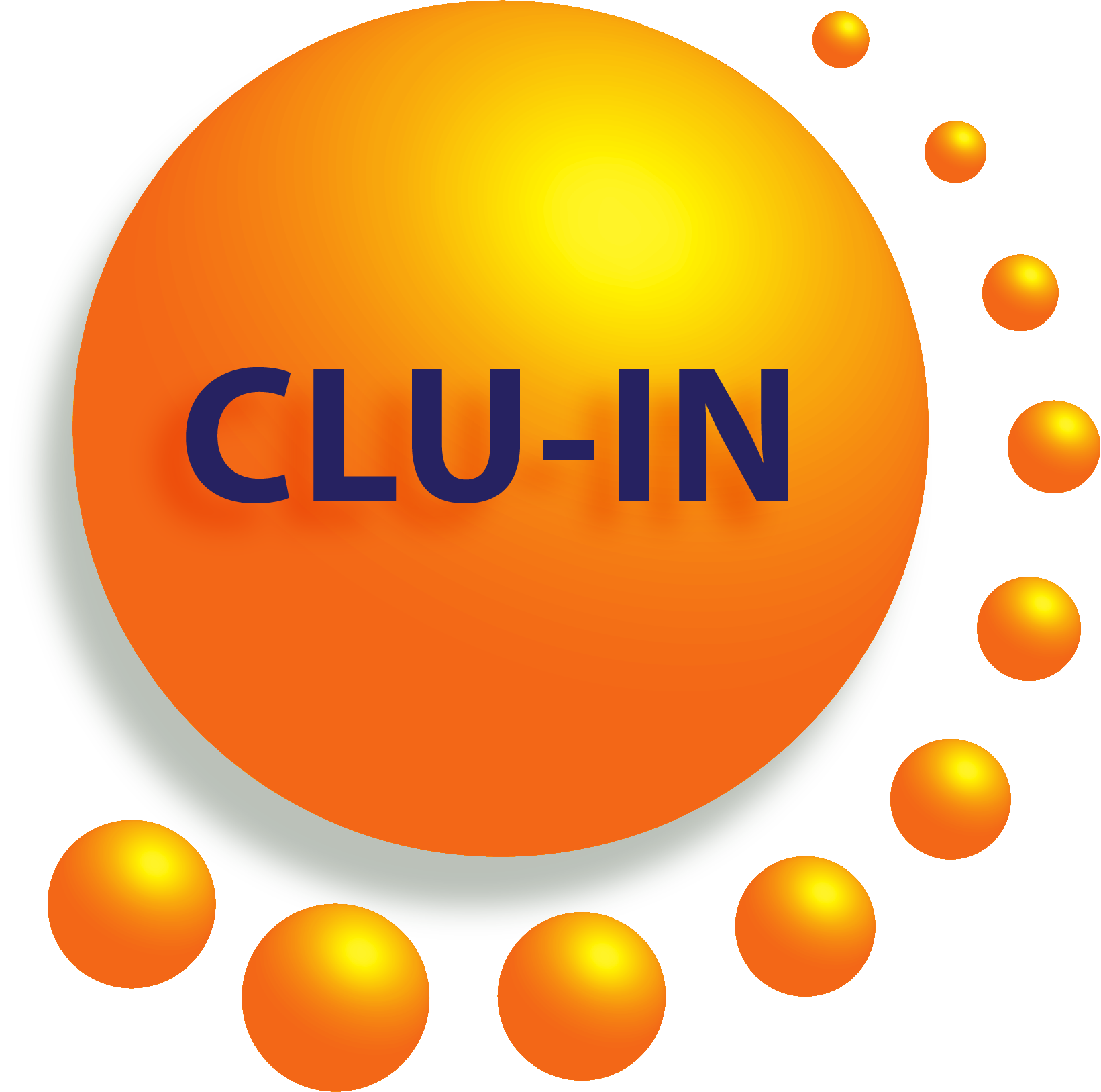Tools for PFAS Site Characterization: Session I - Novel Analytical Chemistry Approaches
Archived: Friday, October 6, 2023
Sponsored by: The NIEHS Superfund Research Program (SRP)
The NIEHS Superfund Research Program (SRP) is sponsoring a Risk e-Learning webinar series, hosted by CLU-IN, focused on research efforts to develop tools for sampling, monitoring, detecting, and characterizing per- and polyfluoroalkyl substances (PFAS) contamination.
The three-part series will feature SRP-funded researchers and collaborators whose research focuses, in part, on understanding the distribution and fate of PFAS in the environment.
The first session will feature SRP-funded investigators working on innovative methods to classify and/or quantify PFAS compounds.
To learn about and register for the other sessions in this webinar series, please see the SRP website.
Diana Aga, Ph.D., of the State University of New York at Buffalo (University at Buffalo) will discuss work affiliated with her R01 grant, Model-aided Design and Integration of Functionalized Hybrid Nanomaterials for Enhanced Bioremediation of Per-and Polyfluoroalkyl Substances. Discussed will be various complementary techniques used to identify and quantify known and unknown PFAS in complex environmental samples, such as liquid chromatography (LC) with high-resolution mass spectrometry (HRMS), supercritical fluid chromatography (SFC), combustion ion chromatography (CIC), and fluorine nuclear magnetic resonance spectroscopy (19F-NMR). Diana will examine the advantages and limitations of these techniques in terms of their applications in PFAS analysis in wastewater and biosolids samples.
Erin S. Baker, Ph.D., of the University of North Carolina at Chapel Hill will illustrate how combining liquid chromatography, ion mobility spectrometry and mass spectrometry enables the evaluation of a broader range of chemical exposure, while uncovering novel species yet to be reported. Throughout life, people are frequently exposed to both naturally occurring and human-made chemicals such as PFAS. Associating these exposures to health risks can however be quite difficult since, for example, there are over 14,000 PFAS listed in the U.S. Environmental Protection Agency's PFAS Master List but only a few hundred standards available for targeted analytical tests and highlights how non-targeted approaches are of great importance.
Lee Ferguson, Ph.D., of Duke University will focus on the development of novel non-targeted, high-resolution mass spectrometry methods and cheminformatics approaches for characterizing PFAS in the environment. He will discuss applications of these methods to assessment of PFAS contamination in drinking water and wastewater in North Carolina.
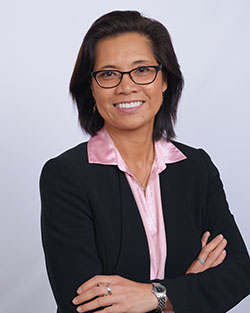 Diana Aga, Ph.D., University at Buffalo, SUNY (dianaaga@buffalo.edu)
Diana Aga, Ph.D., University at Buffalo, SUNY (dianaaga@buffalo.edu)
Diana Aga, Ph.D., is the Henry Woodburn Professor of Chemistry and a State University of New York (SUNY) Distinguished Professor at the University at Buffalo (UB). She serves as the Director of RENEW Institute (Research and Education in eNergy, Environment and Water) at UB. Her research involves studying the fate, transport, effects, and treatment of Chemicals of Emerging Concerns and Persistent Organic Pollutants in the environment. She is an expert in developing trace analytical methods for organic contaminants in complex environmental matrices based on chromatography and mass spectrometry. She is interested in advancing non-target analysis of unknown contaminants in the environment, especially in identifying degradation products and novel forms of per- and polyfluoroalkyl substances (PFAS). Her research includes evaluating the efficiencies of various biological, physical, and chemical treatment processes in removing PFAS, pharmaceuticals, antimicrobials, and antibiotic resistance genes from wastewater treatment plants, biosolids, and in agroecosystems. She also investigates bioaccumulation and toxicity of environmental contaminants in humans, fish, and wildlife. Dr. Aga is recipient of various prestigious awards including the National Science Foundation CAREER award, Alexander von Humboldt Foundation Research Fellowship, Fulbright Fellowship, SETAC Menzie Environmental Education Award, ACS Fellow, ACS AGRO Fellow, ACS Jacob F. Schoellkopf Medal, UB Excellence in Graduate Student Mentoring Award, and SUNY Chancellor’s Award for Excellence in Scholarship and Creative Activities.
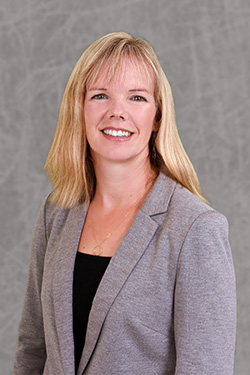 Erin S. Baker, Ph.D., University of North Carolina at Chapel Hill (erinmsb@unc.edu)
Erin S. Baker, Ph.D., University of North Carolina at Chapel Hill (erinmsb@unc.edu)
Erin S. Baker, Ph.D., is an Associate Professor at the University of North Carolina at Chapel Hill. To date, she has published over 160 peer-reviewed papers utilizing different analytical chemistry techniques to study both environmental and biological systems. Over the last 4 years, Erin also helped grow the Females in Mass Spectrometry group, where she served as the Events Committee Chair from 2019-2022. She is currently serving as the Vice President of Education for the International Lipidomics Society, a mentor for Females in Mass Spectrometry, and as an Associate Editor for the Journal of the American Society for Mass Spectrometry. She has received seven US patents, two R&D 100 Awards, and was a recipient of the 2016 ACS Rising Star Award for Top Midcareer Women Chemists, 2022 ASMS Biemann Medal, and 2022 IMSF Curt Brunnée Award. Currently, her research group utilizes advanced separations and novel software capabilities to examine how chemical exposure affects human health.
 Lee Ferguson, Ph.D., Duke University (lee.ferguson@duke.edu or 919-660-5460)
Lee Ferguson, Ph.D., Duke University (lee.ferguson@duke.edu or 919-660-5460)
Lee Ferguson, Ph.D., is an associate professor of civil and environmental engineering at Duke University. He is an environmental analytical chemist who joined Duke in 2009 after six years as an assistant professor in the department of chemistry and biochemistry at the University of South Carolina. Research in the Ferguson laboratory is focused on development of novel methods for trace analysis of organic and nanoparticulate contaminants in the aquatic environment. The analytical methods developed in the Ferguson laboratory are applied to both process-oriented environmental chemistry experiments in the field and laboratory as well as to toxicity bioassays, including whole-organism assays and molecular endpoints. The overarching goal is to gain an increased understanding of how emerging contaminants are transported, transformed and induce deleterious effects within aquatic ecosystems.
Moderators:
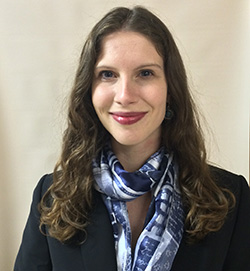 Andrea Tokranov, Ph.D., U.S. Geological Survey (atokranov@usgs.gov)
Andrea Tokranov, Ph.D., U.S. Geological Survey (atokranov@usgs.gov)
Andrea Tokranov, Ph.D., is a research hydrologist at the U.S. Geological Survey (USGS), where her research focuses on environmental exposure, fate, and transport of PFAS. She also manages a USGS PFAS research laboratory where high resolution mass spectrometry is used to analyze environmental samples using both targeted and non-targeted analysis. Andrea earned her Bachelor of Science degree from Brown University in 2012 and her Ph.D. from the Harvard University School of Engineering and Applied Sciences in 2019.
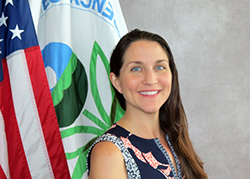 Jean Balent, U.S. EPA Technology Innovation and Field Services Division (balent.jean@epa.gov or 202-566-0832)
Jean Balent, U.S. EPA Technology Innovation and Field Services Division (balent.jean@epa.gov or 202-566-0832)
Ms Balent is on the staff of the EPA's Technology Innovation and Field Services Division where she has worked to collect and disseminate hazardous waste remediation and characterization information since 2003. Ms Balent manages the Clean Up Information Network website and actively supports online communication and collaboration resources available to EPA. She formerly worked with the US Army Corps of Engineers Environmental Engineering Division in the Buffalo District. Ms Balent was also a member of the SUNY-Buffalo Groundwater Research Group where she constructed and tested large scale models of groundwater flow. Ms Balent has also conducted research relating to the Great Lakes, environmental remediation, and brownfields re-development. She holds a Bachelor's degree in environmental engineering from SUNY-Buffalo and a Master's degree in Information Technology from AIU.
Webinar Slides and References:
-
 Slide Presentation for Michelle Heacock, and Heather Henry, NIEHS SRP (1.34MB/PDF)
Slide Presentation for Michelle Heacock, and Heather Henry, NIEHS SRP (1.34MB/PDF)
-
 Slide Presentation Diana Aga University at Buffalo (6.05MB/PDF)
Slide Presentation Diana Aga University at Buffalo (6.05MB/PDF)
-
 Slide Presentation Erin Baker UNC (7.65MB/PDF)
Slide Presentation Erin Baker UNC (7.65MB/PDF)
-
 Slide Presentation Lee Ferguson Duke University (9.70MB/PDF)
Slide Presentation Lee Ferguson Duke University (9.70MB/PDF)
Additional Resources:
- Interstate Technology and Regulatory Council PFAS Reference Documents
- NIEHS PFAS Overview webpage
- SRP Public Health Impact Story: SRP Researchers Inform Health-Related Decision Making on PFAS
- SRP Science Digest: Tackling PFAS from Many Angles
Help & FAQs
- Frequently Asked Questions
- Content Questions?
Call Mali Velasco at 919-794-4708 or mali.velascodelgado@nih.gov - Technical Problems?
Leave us a comment - Cancel Your Registration
- My Participation Records
- CEU Credits and PDHs
Zoom Resources
Before Webinar Day
This seminar will be delivered through Zoom. Participants are encouraged to update to the latest version of the Zoom application for the best experience.
If you are unable to install the Zoom application, most functions will be available if you join just using a modern web browser such as Chrome, Edge or Firefox. We strongly encourage you to run the Zoom Meeting Test prior to attending this webinar. Technical support on the day of the webinar will be very limited and subject to significant delays.
Backup Conference Call
If you cannot participate using online audio, you may join the optional call in line. After checking in for the live event using the instructions listed below, you will see several options to participate. Please click the links in option 4 to follow along by phone and obtain the call in number. If you cannot access the phone number, you may request the call in line from the event moderator in the Q&A or send an email to Jean Balent at balent.jean@epa.gov
Click on "Join Webinar" at the top of this screen, enter your exact first and last name as you registered and enter the number of people attending at your location (including yourself). You should then be taken to the Zoom meeting room. Join with Zoom Application: For those joining with the Zoom application, you may be prompted to sign with a zoom account or join as a guest without signing in.
If joining as a guest, you will be prompted to enter your name and email address. Remember your name, image, video or voice may be visible to others in the live event. When done, click "Join" When it is time for the live event to start, the meeting host will admit you to the live Zoom meeting. Join via web browser (without the Zoom Application): For those joining with a web browser, you may close any pop ups prompting you to download the Zoom app. The next window will allow you to enter your name (first name and last name) and check the box that you are not a robot. Click the blue join button. You may also be asked to provide your email address before joining the room. Remember your name, image, video or voice may be visible to others in the live event. When done, click "Join" When it is time for the live event to start, the meeting host will admit you to the live Zoom meeting. You may need to periodically refresh the browser window to confirm if the host has admitted you. The presenters will control what slide you are viewing. You may submit questions online for the instructors to answer during the webinar by typing in the "Q&A" area. It is not necessary to wait until the question and answer periods to submit questions. At the end of the webinar you will be guided to our feedback form and links to additional resources, including the complete presentation. These links will remain active after the webinar. Provided for your convenience. Importing or accepting the invitation within this iCalendar file is not required, and declining the invitation does not cancel your registration. For additional information on iCalendar, please see our
iCalendar Help It is EPA's policy to make reasonable accommodation to persons with disabilities wishing to participate in the agency's programs and activities, pursuant to the Rehabilitation Act of 1973, 29 U.S.C. 791. Any request for accommodation should be made to Mali Velasco at 919-794-4708 or mali.velascodelgado@nih.gov, preferably one week or more in advance of the webinar, so that EPA will have sufficient time to process the request. EPA would welcome specific recommendations from requestors specifying the nature or type of accommodation needed. EPA welcomes specific recommendations from requestors specifying the nature or type of accommodation needed. Please note that CLU-IN provides both alternate phone call-in options and closed captioning for all webinars, and requests for these specific accommodations are not necessary.
Webinar Day, Checking In
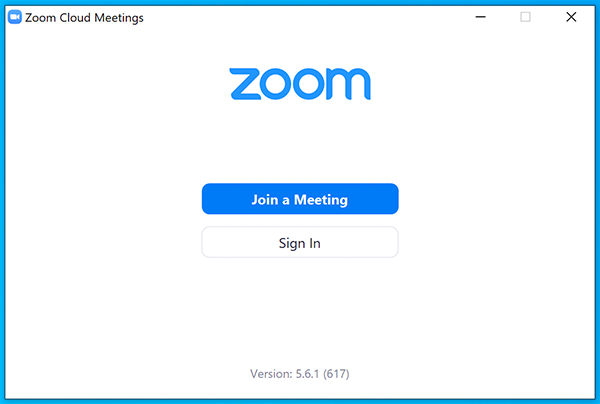
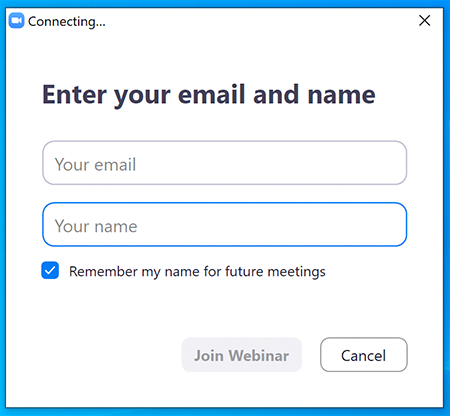
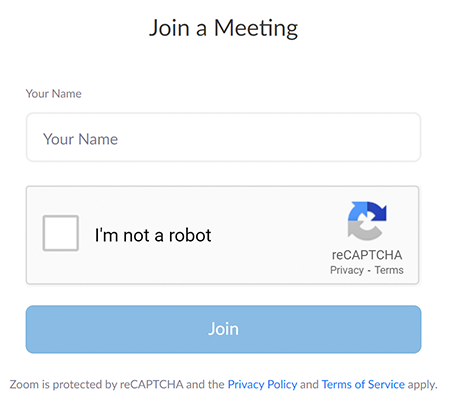
Moving Through Slides
Feedback & Links to Additional Resources
iCalendar File
Rehabilitation Act Notice for Reasonable Accommodation
Rehabilitation Act Notice for Reasonable Accommodation
It is EPA's policy to make reasonable accommodation to persons with disabilities wishing to participate in the agency's programs and activities, pursuant to the Rehabilitation Act of 1973, 29 U.S.C. 791. Any request for accommodation should be made to Mali Velasco at 919-794-4708 or mali.velascodelgado@nih.gov, preferably one week or more in advance of the webinar, so that EPA will have sufficient time to process the request. EPA would welcome specific recommendations from requestors specifying the nature or type of accommodation needed. EPA welcomes specific recommendations from requestors specifying the nature or type of accommodation needed. Please note that CLU-IN provides both alternate phone call-in options and closed captioning for all webinars, and requests for these specific accommodations are not necessary.
Webinar Recording
By participating in this CLU-IN webinar, you automatically agree to authorize recording of audio and visual content presented during this live event and consent to subsequent use of this recording in the public domain by the U.S. Environmental Protection Agency. This recording may include questions, comments and poll responses provided by you during the live event in addition to your name, voice, image or likeness. This recording will be made available after the conclusion of the live event as part of the CLU-IN webinar archives, and will remain available indefinitely. If you do not wish to consent to the recording, please do not join the live event, and contact Jean Balent at 202-566-0832 or balent.jean@epa.gov to discuss your concerns.
Content Disclaimer
This webinar is intended solely to provide information to the public. The views and opinions expressed as part of this webinar do not necessarily state or reflect those of the U.S. Environmental Protection Agency. It is not intended, nor can it be relied upon, to create any rights enforceable by any party in litigation with the United States, or to endorse the use of products or services provided by specific vendors. With respect to this webinar, neither the United States Government nor any of their employees, makes any warranty, express or implied, including the warranties of merchantability and fitness for a particular purpose, or assumes any legal liability or responsibility for the accuracy, completeness, or usefulness of any information, apparatus, product, or process disclosed, or represents that its use would not infringe privately owned rights.

